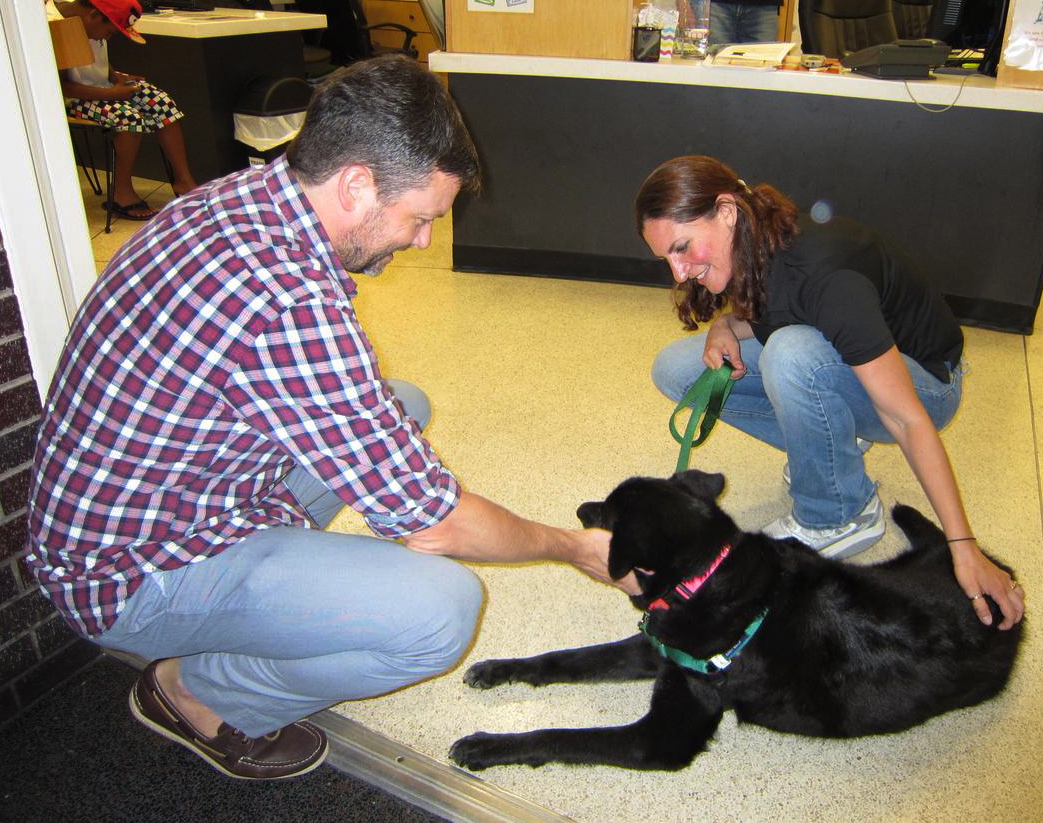The letter asking for a dog was written in the curvy, careful handwriting of a grammar-school girl wanting to make an impression. Crumpled drafts were on the floor of her room, explorations of different arguments to press her case. In the end, my daughter used them all.
And she ended the letter with emotion, signing it “with love and hope.”
Hope? How can a mother reject hope?
Still, it’s been 30 years since I’ve had a dog, our yard isn’t fenced and I thought my potty-training days were over.
How do you know if you are ready for dog ownership?
Experts say you need to examine your lifestyle, living arrangements and finances. Then, you need to find the right match.
“There is a home for every dog, but every home is not right for every dog,” said Kim Saunders, vice president of operations and communications for St. Hubert’s of Madison, N.J., which has two animal shelters and a dog training center.
When deciding whether to get a dog, everyone in the household should be comfortable with the idea, experts say. Once the entire family is on board, it’s important to decide who the primary caregiver will be — the person responsible for feeding, walking, training, exercising and enriching the dog.
Potential dog owners also should figure out whether they have enough time to care for a dog. Even if long workdays are typical, however, dog owners can arrange with a neighbor or dog walker to help out.
“Lots of busy people have pets,” said Dr. Brian Collins, who supervises veterinary students’ appointments and surgeries at Cornell University’s College of Veterinary Medicine. “It’s a matter of whether you are going to make the changes necessary to make it a priority.”
The Schutte family of Cheyenne, Wyo., brought home Toby, a Canaan puppy, in early January. Lance Schutte and his wife have demanding jobs, and after work they are active with their children’s extracurricular activities. They love to play with Toby, but they don’t have a lot of time for long walks.
“All the traits of the Canaan breed seemed to fit well into our family lifestyle,” said Schutte, stewardship coordinator for the Wyoming Stock Growers Land Trust. Canaans are generally loyal and family-oriented, according to the American Kennel Club, require regular exercise and are easy to train. The Schuttes hope that feeding and housetraining Toby will teach their two pre-teens responsibility.
As a general rule, puppies and adolescent dogs require more time than adult dogs, said Gail Buchwald, senior vice president of the ASPCA’s Adoption Center in New York City. Personality and energy level should be considered for a successful dog-family match, she said.
A high-energy dog won’t be an issue for a physically active family, experts say. But if your family fits into the “couch potato” mold and doesn’t have much more to give at the end of the day, a low-energy dog may be a better fit.
Do some research before deciding on a breed or mix of breeds, said Dr. Meghan Herron, assistant professor of veterinary clinical sciences and head of the behavioral medicine clinic at Ohio State University. Some dogs have been bred over generations for specific jobs, such as herding and retrieving. Behavioral problems such as chewing things and barking at their owner can result when dog owners don’t compensate for those jobs with physical exercise or stimulate dogs’ intelligence with games.
The cuteness of puppies is hard to resist. But with that charm comes a big time commitment for housetraining, socialization and playing. Herron recommends puppy classes, where these young dogs are exposed to things they will see as adults — things that move, things that make noise, obstacles and more — so they won’t be afraid of them later.
Joel Fotinos and Alan Stephenson of Maplewood, N.J., plan to take their year-old dog, Martin, to obedience school. Their first year with Martin, believed to be a mix of German shepherd and golden retriever, was a demanding one, but “we are beginning to see the fruits of the work,” Fotinos said.
“You get cats, you bring them home and you’re done,” said Fotinos, a book publisher. “I did not know the amount of care and attention that goes into dogs.”



